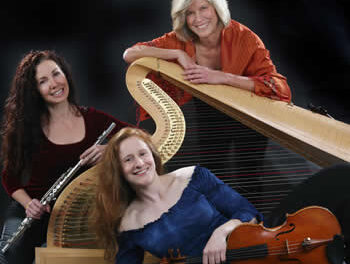A full house cheered the combined forces of the University of North Carolina School of the Arts‘ chorus and orchestra, soloists from the school’s Fletcher Opera Institute, and the Winston-Salem Symphony Chorale in a moving performance of Giuseppe Verdi’s Requiem, given in the Stevens Center in celebration of the 200th anniversary of the master’s birth. This year has seen bicentennial celebrations of the two operatic giants of 19th century, this Verdi concert and three involving Wagner – an opera, a concert, and the Winston-Salem Symphony’s forthcoming performance of Wagner’s “Siegfried Idyll,” which should close the Triad area bicentennial celebrations of the two giants.
It is ironic that some of the most profoundly moving religious music has been composed by religious skeptics, Verdi, Beethoven, Berlioz, Brahms, and Britten among them. Nonetheless, the beauty and sincerity of their compositions have made them the focus of believers and seekers alike. The undeniably dramatic qualities of Verdi’s Requiem give it an urgency and a poignant immediacy, particularly in the quasi-spoken prayer for deliverance in the last moments of the work, the “Libera me,” which Verdi had originally composed five years earlier as part of an ill-fated work honoring the death of Gioacchino Rossini (1792-1868), composed by a consortium of 13 composers. The 1873 death of the Italian national poet, Alessandro Manzoni, provided Verdi the inspiration to begin work on the Requiem and the occasion to re-use the “Libera me,” several parts of which were reworked.
The memorable and recurrent “Dies Irae” theme with its syncopated bass drum (Verdi’s instruction to the drummer: “Lace the bass drum tightly so the off-beats come out dry and very loud!”) was superbly executed by chorus and orchestra and is one of the unifying elements of the 90-minute work. Another is the return of the opening theme in the last section where the chorus accompanies the soprano a cappella, to great effect. The chorus then launched magnificently and energetically into the great final fugue “Libera me.”
The quartet of soloists from the Fletcher Opera Institute was gorgeous at the beginning of this grandiose work, starting with the rich Italianate tenor of Jonathan Johnson and the deep bass voice of David Weigel. Mezzo-soprano Kate Ferrar (who had the lion’s share of solo parts) and soprano Kristin Schwecke completed the quartet with warm and rich voices well suited to their parts. Ms. Ferrar was lovely in the opening of the “Quid sum miser” section, beautifully accompanied by bassoon soloist, Kirsten Filbrandt. The tenor solo “Ingemisco” was gorgeous with its interaction with oboist Alex Liedtke. The solo quartet intoned a beautiful “Lachrimosa” with chorus interpolations (despite the only imperfect entrances from the winds all evening) winding down the long “Dies irae” segment of the mass. The colorful “Tuba mirum” with trumpets in the balcony added dramatic effect, closing on an abrupt dissonance.
Notwithstanding the beauty of their voices, fatigue eventually sapped at blend and intonation until at the beginning of the “Agnus Dei” the wished-for octaves were top-heavy and neither together nor in tune. The final supplication (“Libera me”) lacked spontaneity and urgency – surely it is not too much to expect such a dramatic moment to be sung by memory!
The drama and beauty of Verdi’s writing wins in the end and blemishes disappear when the work is seen as a whole. The glorious singing and powerful orchestral playing dominate, and Verdi lives again. Bravo and thanks to Maestro James Allbritten for presenting and leading this musical masterpiece.











